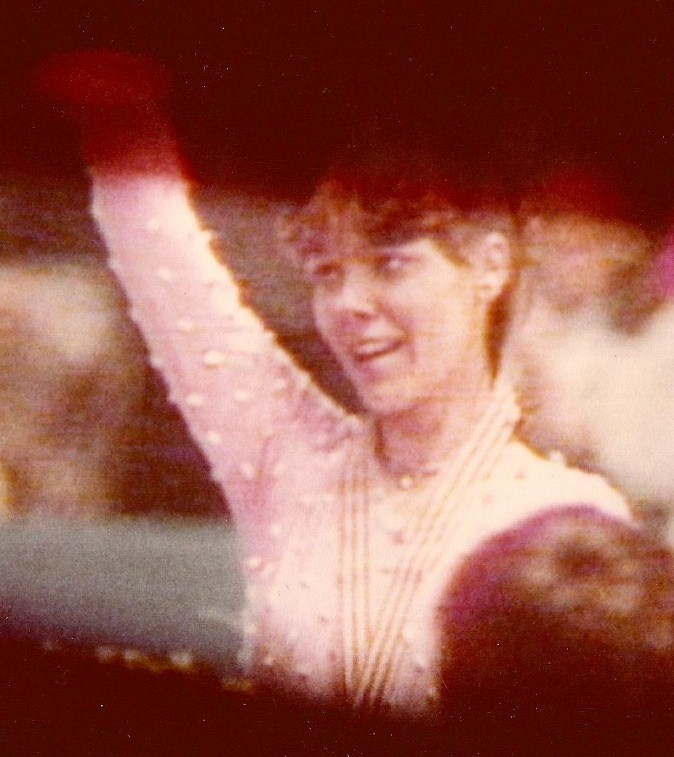1. Early Life and Personal Background
Dagmar Lurz was born on January 18, 1959, in Dortmund, West Germany. Following her competitive figure skating career, she pursued higher education, studying medicine at the university in Cologne.
2. Figure Skating Career
Dagmar Lurz had a distinguished amateur figure skating career, marked by her rigorous training, unique skating style, significant competitive achievements, and some notable judging controversies.
2.1. Training and Skating Style
Lurz trained in Oberstdorf, West Germany, under the guidance of her coach, Erich Zeller. She was recognized for her strong command of compulsory figures, an essential component of figure skating competitions at the time. Her proficiency in figures often placed her favorably against top rivals such as Anett Pötzsch of East Germany, Linda Fratianne of the United States, and Emi Watanabe of Japan. Between 1977 and 1980, Lurz consistently placed just behind Pötzsch in the figures segment at most major competitions. Technically, Lurz was competitive with her peers, demonstrating the ability to execute two different triple jumps: the Salchow and the loop.
2.2. Major Achievements
Lurz's most successful year in competitive skating was 1980. At the European Championships in Gothenburg, she secured a silver medal, placing behind Anett Pötzsch. This was her fourth consecutive European silver medal, having previously won silver in 1977 (Helsinki), 1978 (Strasbourg), and 1979 (Zagreb).

At the 1980 Winter Olympics in Lake Placid, Lurz earned the bronze medal in the ladies' singles event, finishing behind Anett Pötzsch and Linda Fratianne. Following the Olympics, she competed at the 1980 World Figure Skating Championships held in her home country, Dortmund. There, she claimed the silver medal, surpassing Olympic silver medalist Linda Fratianne and earning enthusiastic applause from her local fans. This marked her second World Championship medal, as she had previously won a bronze medal at the 1977 World Championships in Tokyo. In national competitions, Lurz was a dominant force, winning the West German Championship four times consecutively from 1977 to 1980. She had also previously secured bronze medals in 1973, 1975, and 1976, and placed 5th in 1972.
2.3. Controversies and Judging Issues
Despite her technical strengths, particularly her mastery of compulsory figures and successful execution of triple jumps, Dagmar Lurz frequently encountered challenges with her presentation scores in the short program and free skating segments. These consistently low scores often impacted her overall placement in competitions, even when her technical elements were performed successfully. The issue became particularly prominent during her most successful year in 1980, when her results, including her Olympic bronze and World silver medals, were the subject of considerable discussion due to the scoring in the short program and free skating performances.
3. Post-Retirement Activities
After retiring from competitive skating in 1980, Dagmar Lurz remained actively involved in the sport. She currently serves as an ISU judge and referee for Germany, overseeing various figure skating events. In addition to her roles in figure skating officiating, she has applied her medical expertise as a physician for the German national team.
4. Competition Results
| International | |||||||||
|---|---|---|---|---|---|---|---|---|---|
| Event | 71-72 | 72-73 | 73-74 | 74-75 | 75-76 | 76-77 | 77-78 | 78-79 | 79-80 |
| Winter Olympics | 10th | 3rd | |||||||
| World Champ. | 17th | 9th | 3rd | 4th | 4th | 2nd | |||
| European Champ. | 8th | 6th | 2nd | 2nd | 2nd | 2nd | |||
| Nebelhorn Trophy | 3rd | ||||||||
| National | |||||||||
| German Champ. | 5th | 3rd | 3rd | 3rd | 1st | 1st | 1st | 1st | |
5. Legacy
Dagmar Lurz's career left a notable mark on figure skating, particularly during an era when compulsory figures held significant weight in competition outcomes. Her consistent performance at the European and World Championships, combined with her Olympic bronze medal, solidify her place as one of West Germany's most successful female figure skaters. Her ability to execute triple jumps, while also excelling in figures, demonstrated a comprehensive skill set, even if her artistic scores were a point of contention. Post-retirement, her continued involvement as an ISU judge and referee, along with her role as a physician for the national team, underscores her enduring commitment and influence within the sport. Lurz is remembered for her technical prowess and as a prominent competitor during a pivotal period in figure skating history.